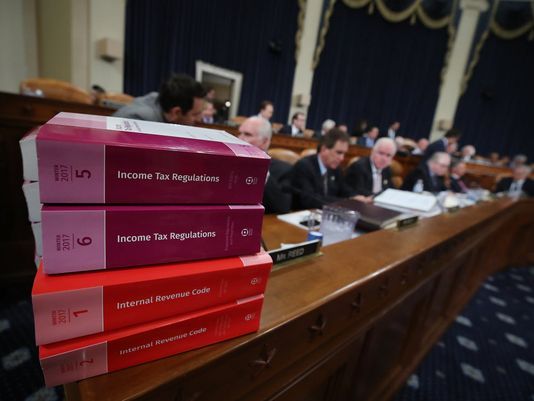|
The Tax Cuts and Jobs Act is already reshaping economic incentives and political calculations in ways not foreseen by the bill’s drafters as accountants, tax attorneys, blue state politicians and ordinary taxpayers figure a pathway forward. Here’s how (so far):
1. Repeal of the Affordable Care Act’s mandate included at the last minute in the Tax Cuts and Jobs Act will have the effect, at least short term, of driving a higher percentage of tax dollars through subsidies to beneficiaries while reducing personal and private sector participation. This is a pattern directly opposite to the ideological aspirations of the drafters as the tax cut bill actually ramps up federal commitments to the ACA. In this unanticipated reversal, eliminating the mandate increases the dependency of Obamacare on federal subsidies and reduces the number of healthy individuals enrolled and paying full price. 2. The day after the Tax Cuts and Jobs Act was signed into law by Trump the Speaker of the House Paul Ryan declared his intention to pursue “entitlement” reform to control deficit growth. The net result may be that deficits incurred to reduce taxes provide a future rationale for slicing entitlement benefits such as Medicaid, Medicare and Social Security. 3. Charities are on the firing line of the Tax Cuts and Jobs Act. An estimated 16 -24 billion is likely to be lost for the good works of non profits, churches, synagogues and mosques according to credible estimates (as per LA Times). Again the ideological commitments of the drafters, generally biased against government programs in favor of private sector, non-profit interventions were countermanded by language in the new law. 4. The cap of $10,000 on state and local tax deductions included in the Tax Cuts and Jobs Act drives a wedge between high tax states and the Trump administration. California, New York and New Jersey are exploring multiple avenues for end arounds that will protect their tax payers against sharp increases. These same blue states line up against Trump and the Republicans on cannabis enforcement, off shore drilling and a host of environmental concerns. 5. Pass through benefits permitting 20 % of small business profits to be deductible increase the number of individuals who will seek to reclassify themselves as businesses to reduce their tax bills. The scale and scope of this end around is difficult to predict but is certain to be another unintended consequence of the legislation. 6. Last minute deals in return for their support for the Tax Cuts and Jobs Act were struck by Senators Susan Collins and Jeff Flake. Senator Susan Collins of Maine gained what she called an “iron clad” guarantee that health care subsidies would be increased to better protect the poor and vulnerable. Senator Jeff Flake gained a guarantee that the status of DACA participants would be resolved to their benefit. Since neither of these side deals were incorporated into the Tax Cuts and Jobs Act passed by Congress and signed into law by Donald Trump their consequentiality is impossible to judge though it could be significant. To further game out the implications of these side deals, in the event they are broken, it’s possible the betrayed promises will come back to affect future votes by the two aggrieved Senators.
0 Comments
Leave a Reply. |
Frank C. Pierson, Jr.Frank Pierson retired after forty years of work with the Industrial Areas Foundation (IAF) as a professional organizer. He began his career in 1971 in Chicago, moved to Queens, New York City and migrated west to work in Arizona, New Mexico, Nevada and Colorado. He resides with his wife, Mary Ellen Kazda, in Oracle, Arizona. He may be reached at [email protected] Archives
June 2018
|



 RSS Feed
RSS Feed
